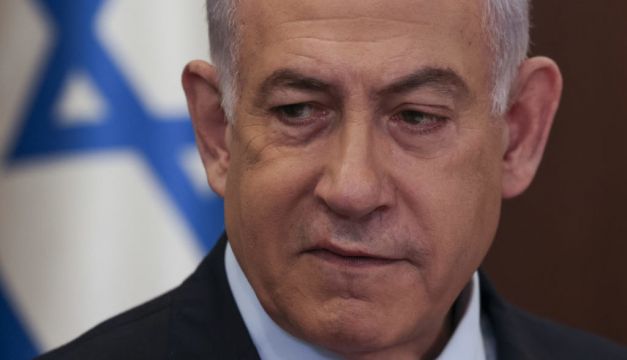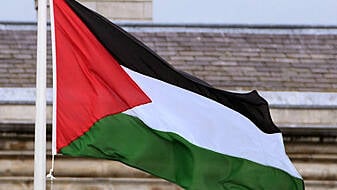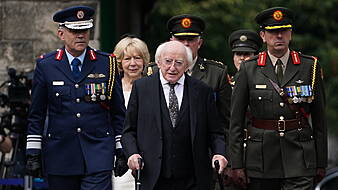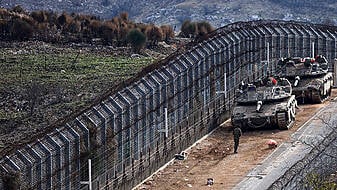Three Israeli hostages who were mistakenly shot by Israeli troops in the Gaza Strip had been waving a white flag and were shirtless when they were killed, military officials said.
Prime minister Benjamin Netanyahu said in a nationwide address that the killings “broke my heart, broke the entire nation’s heart,” but he indicated no change in Israel’s military campaign.
“We are as committed as ever to continue until the end, until we dismantle Hamas, until we return all our hostages,” he said.
Anger over the mistaken killings is likely to increase pressure on the Israeli government to renew Qatar-mediated negotiations with Hamas over swapping more of the remaining captives, which Israel says number 129, for Palestinians imprisoned in Israel.
A senior Hamas official, Osama Hamdan, reiterated that there will be no further hostage releases until the war ends and Israel accepts the militant group’s conditions for an exchange. Mr Netanyahu said Israel would never agree to such demands.
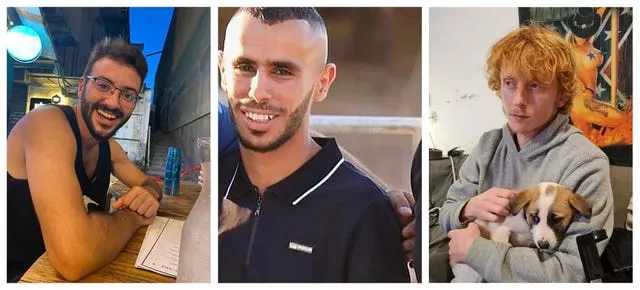
Israel’s account of how the three hostages – Alon Shamriz, Samer Al-Talalka and Yotam Haim – were killed also raised questions about its soldiers’ conduct. Palestinians on several occasions have said Israeli soldiers opened fire as civilians tried to flee to safety. Hamas has claimed other hostages were previously killed by Israeli fire or air strikes, without presenting evidence.
An Israeli military official said the hostages had likely been abandoned by their captors or had escaped. The soldiers’ behaviour was “against our rules of engagement”, the official said, and was being investigated at the highest level.
The hostages did everything they could to signal they were not a threat, “but this shooting was done during fighting and under pressure,” Herzi Halevi, chief of the military’s general staff said.
Mr Halevi added: “There may be additional incidents in which hostages will escape or will be abandoned during the fighting. We have the obligation and the responsibility to get them out alive.”
The hostages, all in their 20s, were killed on Friday in the Gaza City area of Shijaiyah, where troops are engaged in fierce fighting with Hamas. They had been among more than 240 people taken hostage during an unprecedented raid by Hamas into Israel on October 7th in which around 1,200 people were killed, mostly civilians.
Speaking at a rally in Tel Aviv, Rubi Chen, father of 19-year-old hostage Itay Chen, criticised the government for believing hostages can be retrieved through military pressure. “Put the best offer on the table to get the hostages home alive,” he said. “We don’t want them back in bags.”
The Israeli military official said the three hostages had emerged from a building close to Israeli soldiers’ positions. They waved a white flag and were shirtless, possibly trying to signal they posed no threat.
Two were killed immediately, and the third ran back into the building screaming for help in Hebrew. The commander issued an order to cease fire, but another burst of gunfire killed the third man, the official said.
Israeli media gave a more detailed account. Daily newspaper Yediot Ahronot said that according to an investigation into the incident, soldiers followed the third man and shouted at him to come out, and at least one soldier shot him when he emerged from a staircase.

The Israeli newspaper Haaretz said the soldiers who followed the third hostage believed he was a Hamas member. Local media reported that soldiers earlier saw a nearby building marked “SOS” and “Help! Three hostages” but feared it might be a trap.
Dahlia Scheindlin, a political analyst, said it was unlikely the killings would massively alter public support for the war. Most Israelis still have a strong sense of why it is being fought and believe Hamas needs to be defeated, she said.
“They feel like there’s no other choice,” she said.
The killings emphasised the dangers hostages face in areas of house-to-house combat like Shijaiyah, where nine soldiers were killed this week in one of the war’s deadliest days for Israeli ground forces. The military has said Hamas has booby-trapped buildings and ambushed troops from a tunnel network it built under Gaza City.
On Saturday, the Hostages and Missing Persons Families Forum asserted that another hostage, 27-year-old Inbar Hayman, had been killed in Gaza. The group gave no details.
Hamas released over 100 hostages for Palestinian prisoners during a brief ceasefire in November. Nearly all freed on both sides were women and minors. Talks on further swaps broke down.
Hamas seeks the return of all Palestinian prisoners. As of late November, Israel held nearly 7,000 Palestinians accused or convicted of security offences, including hundreds rounded up since the war began.
The war has flattened much of northern Gaza and driven 85 per cent of the territory’s population of 2.3 million from their homes. Only a trickle of aid has been able to enter Gaza. Israel has said it would open a second entry point at Kerem Shalom to speed up deliveries.
The offensive has killed more than 18,700 Palestinians, the health ministry in Hamas-run Gaza said on Thursday. It does not differentiate between civilian and combatant deaths.

It was the ministry’s last update before the latest communications blackout in Gaza. “Now 48 hours and counting. The incident is likely to limit reporting and visibility to events on the ground,” said Alp Toker, director of NetBlocks, a group tracking internet outages.
The war has been deadly for journalists. Mourners held funeral prayers for Samer Abu Daqqa, a Palestinian journalist working for broadcaster Al Jazeera who was killed on Friday in an Israeli strike. The Committee to Protect Journalists said the cameraman was the 64th journalist to be killed in the conflict: 57 Palestinians, four Israelis and three Lebanese.
The United States, Israel’s closest ally, has expressed unease over Israel’s failure to reduce civilian casualties, but the White House continues to offer support with weapons shipments and diplomatic backing.
Israel and the US remain far apart on who should run Gaza after the war. Washington wants to see a unified Palestinian government in Gaza and the West Bank as a precursor to eventual Palestinian statehood. A two-state solution to the Israeli-Palestinian conflict enjoys broad international support.
Mr Netanyahu reiterated on Saturday that Israel will retain security in a demilitarised Gaza and that a Palestinian state would pose a threat to Israel. “I am proud to have prevented the establishment of a Palestinian state,” he said.
US secretary of defence Lloyd Austin is travelling to Israel to continue discussions on a timetable for winding down the war’s intense combat phase. But Mr Netanyahu and military leaders vowed to continue until “complete victory”, which the prime minister noted will take time.
